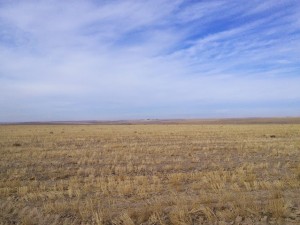Nov
16

Posted by Carolyn Martin on November 16th, 2015
Posted in: Health Literacy, Public Health
 The National Organization of State Offices of Rural Health have designated this year’s National Rural Health Day, November 19.
The National Organization of State Offices of Rural Health have designated this year’s National Rural Health Day, November 19.
According to the 2010 census data, about a quarter of the U.S. population resides in rural areas and about 65% of U.S. counties are designated as rural. Many people are drawn to the beautiful landscape, the slower pace, and the close-knit community experience. Many of these communities have thriving businesses, provide essential services, and have a rich family and historical heritage.
Yet, rural areas experience some health challenges that many in urban areas do not. Accessibility to health care is a tremendous issue and is affected by several factors. The number of primary care physicians in rural areas is low. Only 10% of physicians practice in rural areas and if a specialist is needed the access is even more difficult. And it’s not just a physician shortage but the number of non-physicians, such as dentists, nurses, pharmacists, mental health workers, and others is alarming low. Fewer health services in rural areas requires greater effort for those in rural areas to access care. Transportation, whether due to long distances or having an unreliable vehicle creates obstacles to chronic disease and preventive health appointments. Sometimes this also requires taking off work several hours or even whole days. Communities in rural areas also have a higher rate of older adults who tend to have more chronic conditions and there is a higher rate of poverty and fewer economic and educational opportunities. Many people are uninsured or under-insured and may not know about health issues and health insurance. Also, the small town charm that so many find attractive can also be a factor that limits people’s access to health information and to access to care. Many health issues such as mental health, chronic diseases (such as HIV), substance abuse, domestic violence, sexually transmitted diseases can make it difficult to seek help and treatment due to stigma and lack of anonymity.
Libraries in smaller communities have an opportunity to offer programs and information regarding sensitive health issues. Your library staff may feel uncomfortable answering health reference questions and the PNR offers classes to learn about the various National Library of Medicine resources as well as various consumer health topics such as health literacy, teen health, senior health and health in the news. The PNR can also assist you and your staff about offering a health reference service and some guidelines regarding such a service. Take a look at the upcoming NN/LM regional training opportunities http://nnlm.gov/training-schedule. Knowing your staff is professional and that privacy is a priority will not only allow patrons to trust the library as a resource but also as a service.
Here are just a few of the great health resources the PNR recommends for those in rural areas: